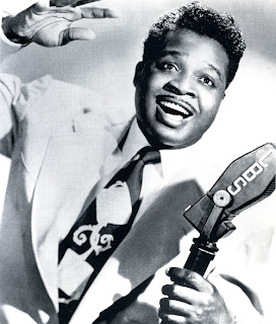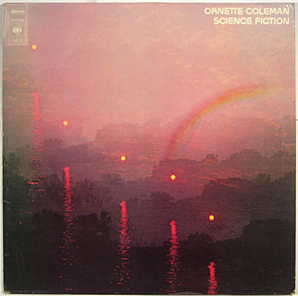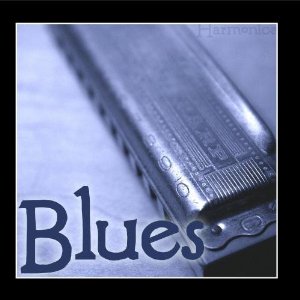BLUES ARTIST BIRTHDAY:
Roy Brown (1925) - When you draw up a short list of the R&B pioneers who exerted a primary influence on the development of rock & roll, respectfully place singer Roy Brown's name near its very top. His seminal 1947 DeLuxe Records waxing of "Good Rockin' Tonight" was immediately ridden to the peak of the R&B charts by shouter Wynonie Harris and subsequently covered by Elvis Presley, Ricky Nelson, Jerry Lee Lewis, and many more early rock icons. In addition, Brown's melismatical (singing of a single syllable of text while moving between several different notes in succession) pleading, gospel-steeped delivery impacted the vocal styles of B.B. King, Bobby Bland, and Little Richard (among a plethora of important singers). Clearly, Roy Brown was an innovator -- and from 1948-1951, an R&B star whose wild output directly presaged rock's rise. After a long dry spell, Brown's acclaimed performance as part of Johnny Otis' troupe at the 1970 Monterey Jazz Festival and a 1973 LP for ABC-BluesWay began to rebuild his long-lost momentum. But it came too late; Brown died of a heart attack in 1981 at age 56, his role as a crucial link between postwar R&B and rock's initial rise still underappreciated by the masses.
JAZZ ARTIST BIRTHDAY:
Cliff Leeman (1913) - “I try to play behind the soloist. I’d rather play a four-bar chase chorus with a horn, something with different tones and sounds, than get into a rudimental solo,” said Cliff Leeman, one of jazz drumming’s most tasteful artists. Never the showman -- therefore, not well recognized by the public -- Leeman concentrated on making the band sound good and the players feel comfortable. Greatly admired by musicians, Leeman was popular in big band circles for his marvelous timekeeping and effortless swing. A great admirer of Zutty Singleton, Jo Jones and Sid Catlett, Leeman possessed a style that was the embodiment of good taste combined with an artistic musical approach. Though quite capable of playing outstanding solos, Leeman had little desire to do so. Quite content remaining in a totally supportive position, his refined sense of swing and rock-solid timing uplifted every band he worked with. He died on April 26, 1986.
JAZZ ALBUM RECORDED:
Ornette Coleman – Science Fiction (1971)
Track Listing:
1. What Reason Could I Give?
2. Civilization Day
3. Street Woman
4. Science Fiction
5. Rock the Clock
6. All My Life
7. Law Years
8. The Jungle Is a Skyscraper
Review by Steve Huey at Allmusic:
Ornette Coleman's first album for Columbia followed a stint on Blue Note that found the altoist in something of a holding pattern. Science Fiction was his creative rebirth, a stunningly inventive and appropriately alien-sounding blast of manic energy. Coleman pulls out all the stops, working with a variety of different lineups and cramming the record full of fresh ideas and memorable themes. Bassist Charlie Haden and drummers Billy Higgins and/or Ed Blackwell are absolutely indispensable to the overall effect, playing with a frightening, whirlwind intensity throughout. The catchiest numbers -- including two songs with Indian vocalist Asha Puthli, which sound like pop hits from an alternate universe -- have spacy, long-toned melodies that are knocked out of orbit by the rhythm section's churning chaos, which often creates a totally different pulse. Two tracks reunite Coleman's classic quartet of Haden, Higgins, and Don Cherry; "Street Woman" just wails, and "Civilization Day" is a furious, mind-blowing up-tempo burner. "Law Years" and "The Jungle Is a Skyscraper" feature a quintet with Haden, Blackwell, tenorist Dewey Redman, and trumpeter Bobby Bradford; both have racing, stop-start themes, and "Jungle"'s solos have some downright weird groaning effects. "Rock the Clock" foreshadows Coleman's '70s preoccupations, with Redman playing the musette (an Arabic double-reed instrument) and Haden amplifying his bass through a wah-wah pedal to produce sheets of distorted growls. The title track is a free septet blowout overlaid with David Henderson's echoed poetry recitations, plus snippets of a crying baby; it could sound awkward today, but in context it's perfectly suited to the high-octane craziness all around it. Science Fiction is a meeting ground between Coleman's past and future; it combines the fire and edge of his Atlantic years with strong hints of the electrified, globally conscious experiments that were soon to come. And, it's overflowing with brilliance.
1. What Reason Could I Give?
2. Civilization Day
3. Street Woman
4. Science Fiction
5. Rock the Clock
6. All My Life
7. Law Years
8. The Jungle Is a Skyscraper
Review by Steve Huey at Allmusic:
Ornette Coleman's first album for Columbia followed a stint on Blue Note that found the altoist in something of a holding pattern. Science Fiction was his creative rebirth, a stunningly inventive and appropriately alien-sounding blast of manic energy. Coleman pulls out all the stops, working with a variety of different lineups and cramming the record full of fresh ideas and memorable themes. Bassist Charlie Haden and drummers Billy Higgins and/or Ed Blackwell are absolutely indispensable to the overall effect, playing with a frightening, whirlwind intensity throughout. The catchiest numbers -- including two songs with Indian vocalist Asha Puthli, which sound like pop hits from an alternate universe -- have spacy, long-toned melodies that are knocked out of orbit by the rhythm section's churning chaos, which often creates a totally different pulse. Two tracks reunite Coleman's classic quartet of Haden, Higgins, and Don Cherry; "Street Woman" just wails, and "Civilization Day" is a furious, mind-blowing up-tempo burner. "Law Years" and "The Jungle Is a Skyscraper" feature a quintet with Haden, Blackwell, tenorist Dewey Redman, and trumpeter Bobby Bradford; both have racing, stop-start themes, and "Jungle"'s solos have some downright weird groaning effects. "Rock the Clock" foreshadows Coleman's '70s preoccupations, with Redman playing the musette (an Arabic double-reed instrument) and Haden amplifying his bass through a wah-wah pedal to produce sheets of distorted growls. The title track is a free septet blowout overlaid with David Henderson's echoed poetry recitations, plus snippets of a crying baby; it could sound awkward today, but in context it's perfectly suited to the high-octane craziness all around it. Science Fiction is a meeting ground between Coleman's past and future; it combines the fire and edge of his Atlantic years with strong hints of the electrified, globally conscious experiments that were soon to come. And, it's overflowing with brilliance.




